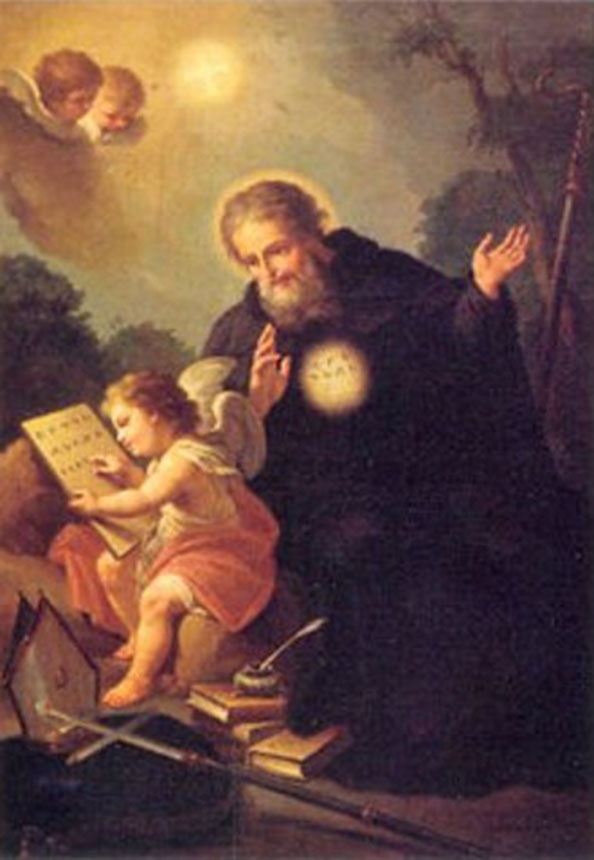
Mesrop Mashtots creating the Armenian Alphabet, Francesco Maggiotto,1750-1805
The Armenian Alphabet was invented in 405 AD by Armenian linguist, statesman and hymnologist Mesrop Mashtots. Armenian calligraphy is included in the UNESCO Representative List of the Intangible Cultural Heritage.
The Armenian alphabet is a prayer. Each letter means one word. It is in the order that Mesrop Mashtots created that you can read a prayer.
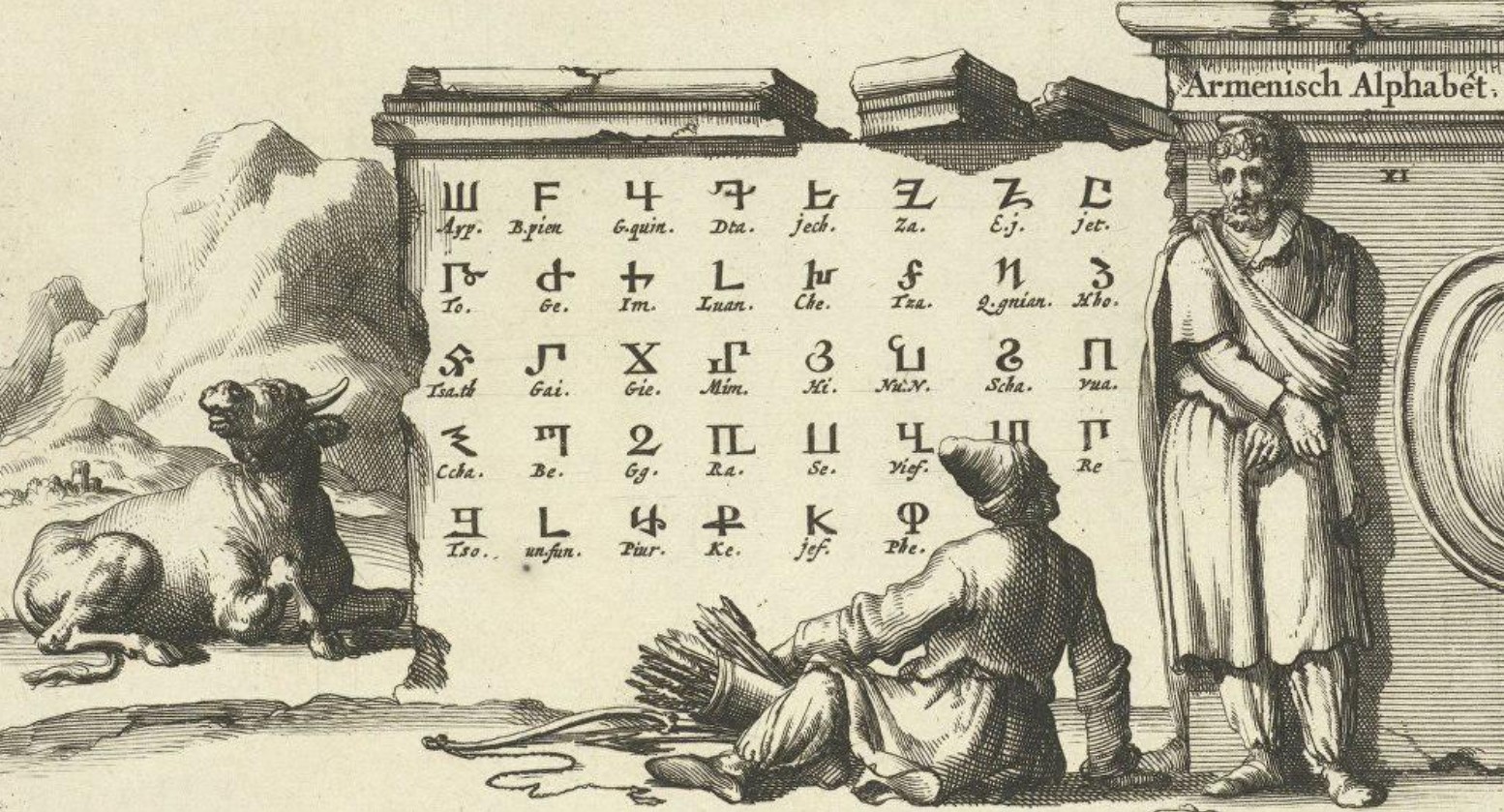
The Armenian Alphabet on an engraving by the Dutch artist Jan Leikin, 1690
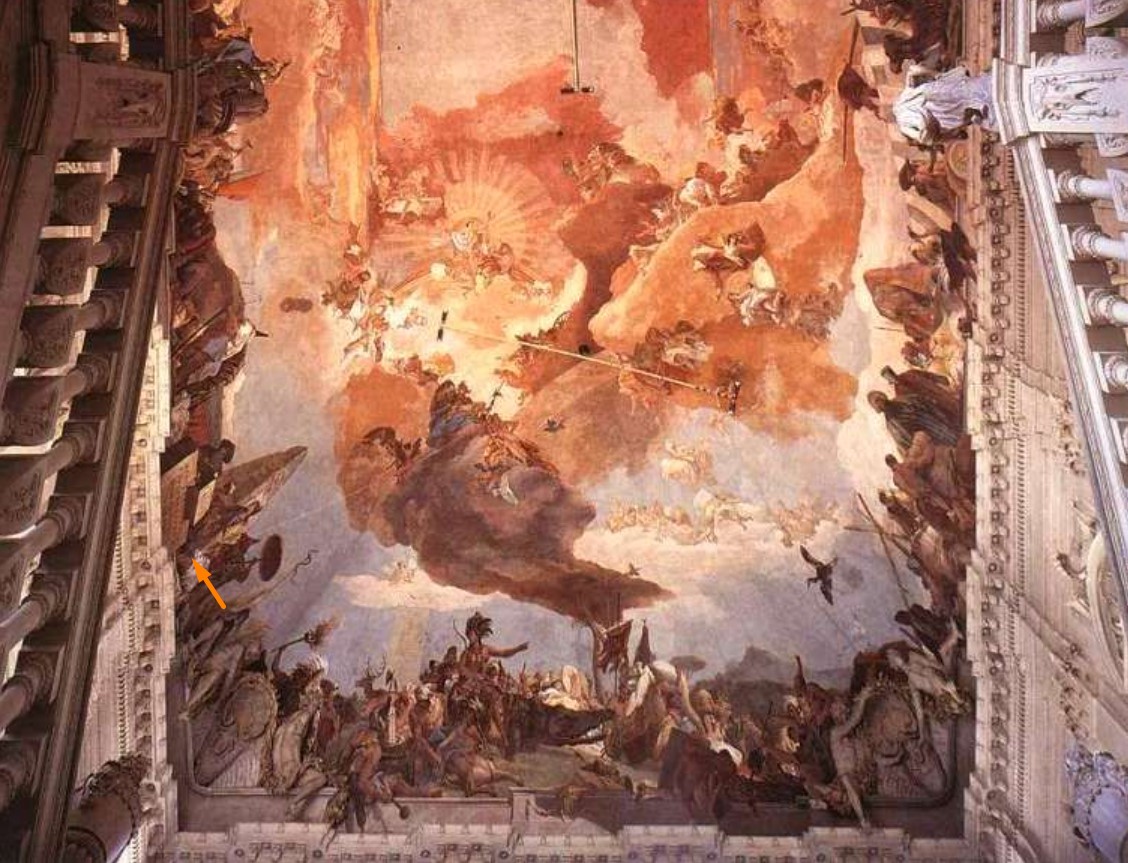
Wurzburg Residence, Fresco by Giambattista Tiepolo on ceiling of entrance, Mesrop Mashtots and Armenian Letters
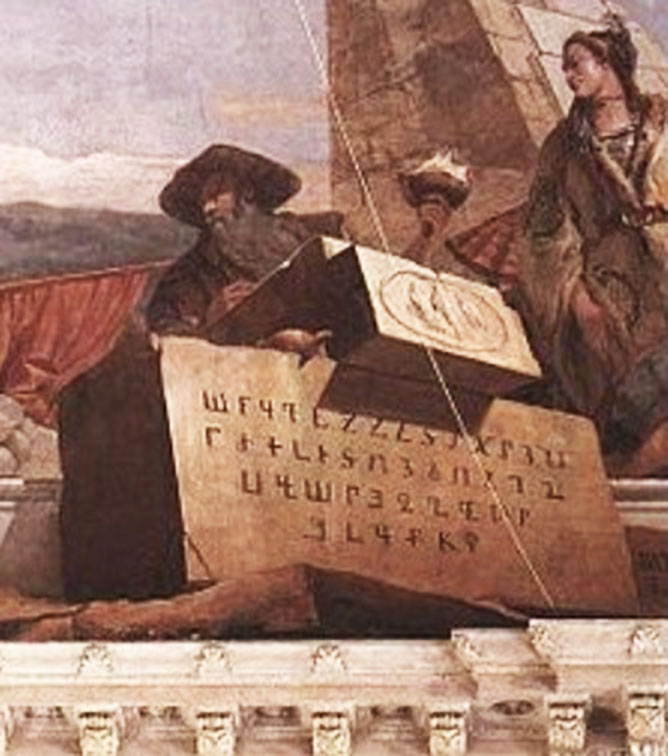
Mesrop Mashtots and Armenian Letters by Venetian painter Giovanni Battista Tiepolo,1696 – 1770, Fresco in Würzburg Residence – the Largest Ceiling Fresco in the World, Bavaria.
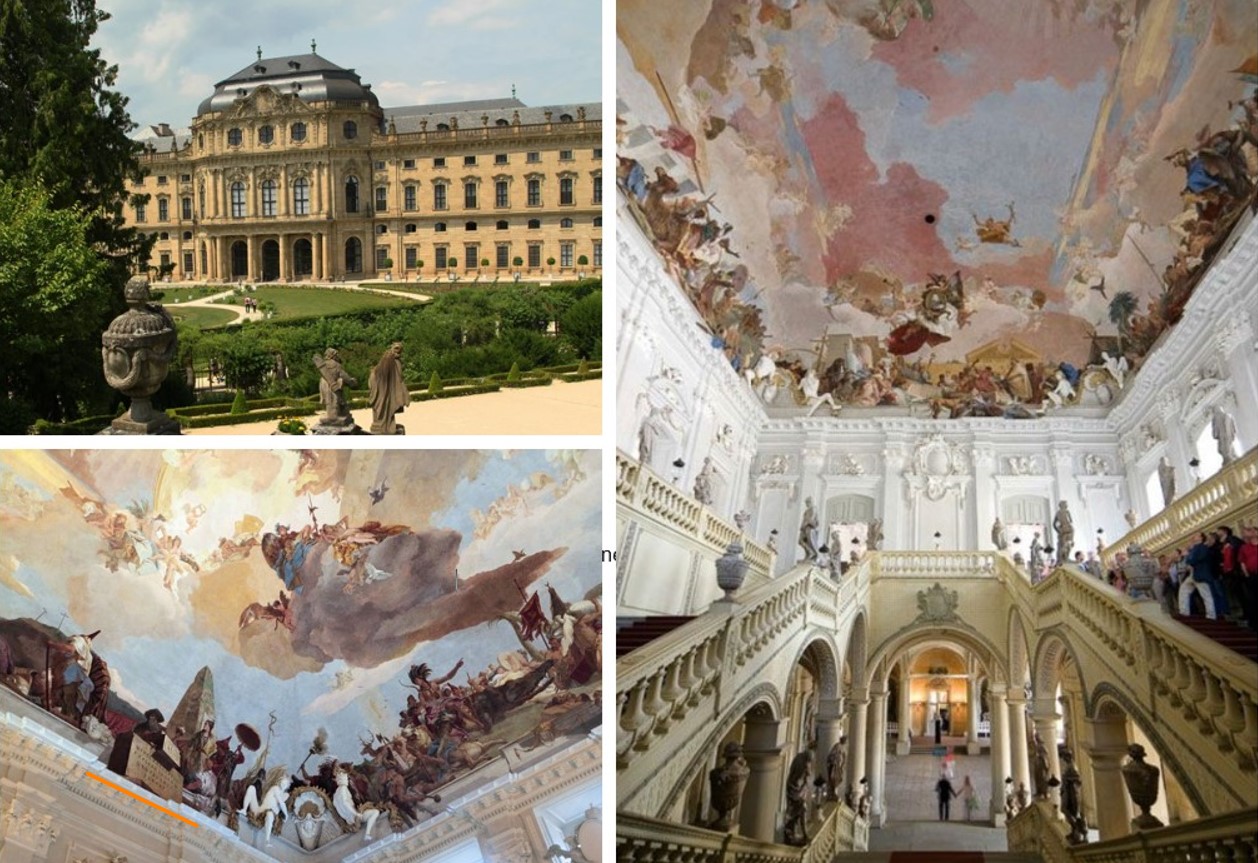
The largest in the world fresco in Würzburger Residenz, Bavaria, Germany created in 1750-1753 by Venetian painter Giovanni Battista Tiepolo. It shows paintings of the four continents: Europe, America, Asia and Africa.
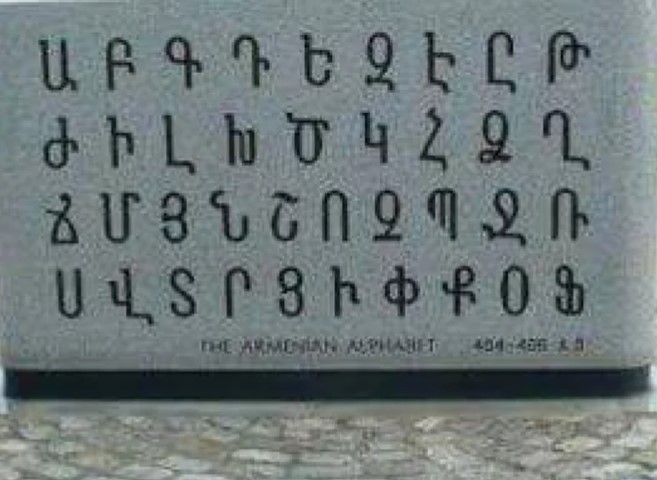
Armenian Alphabet, Providence, Rhode Island, USA. The inscription: “As long as the Armenian speech will sound and the Armenian script will exist, Armenia will live.”
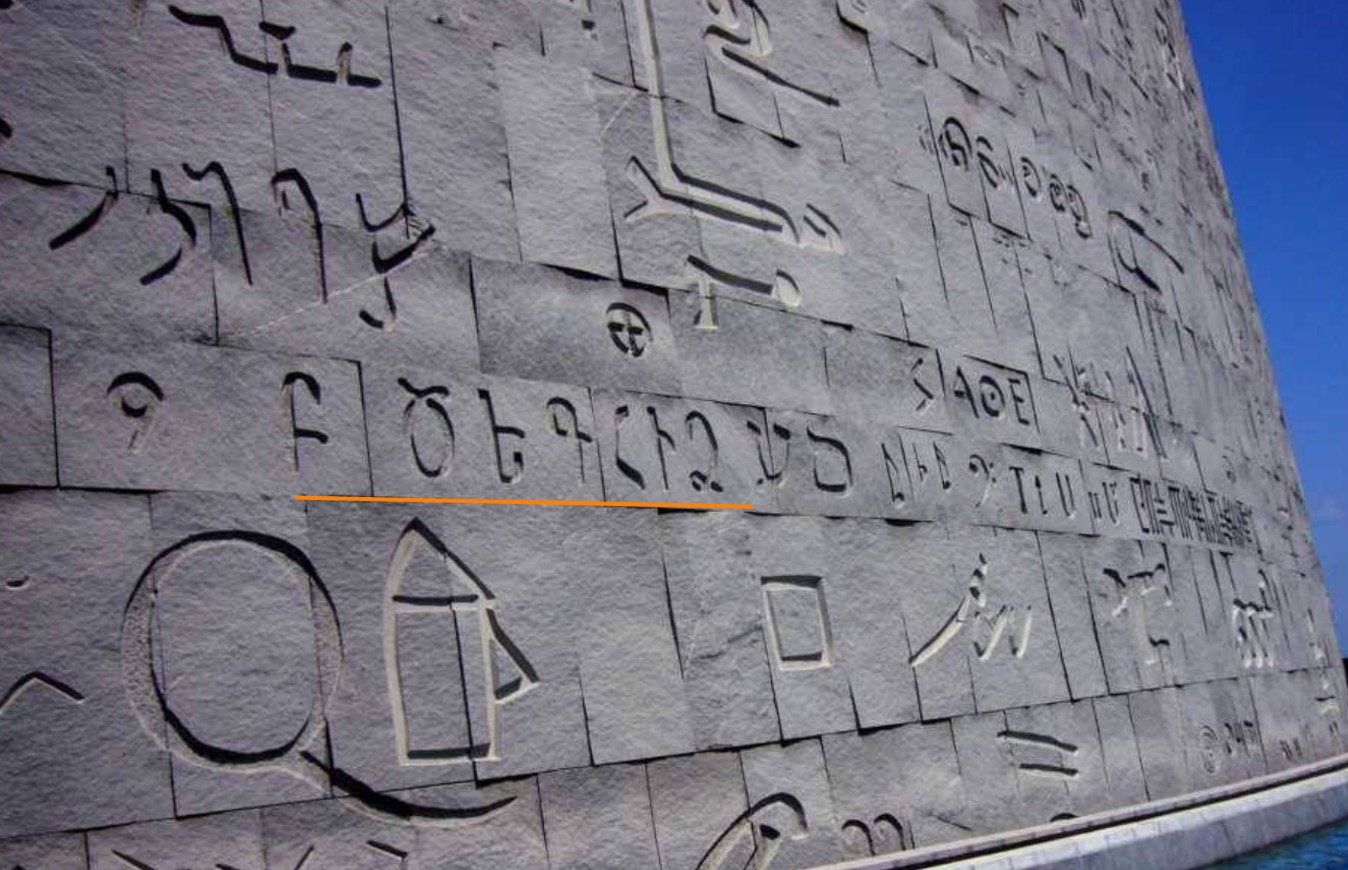
Armenian Letters, Alexandria Library Wall, Egypt
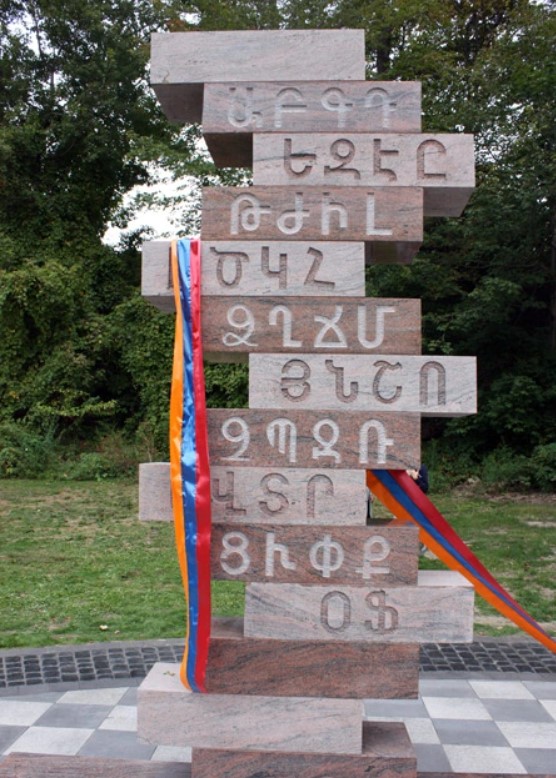
Armenian Alphabet, Cleveland, Ohio, USA
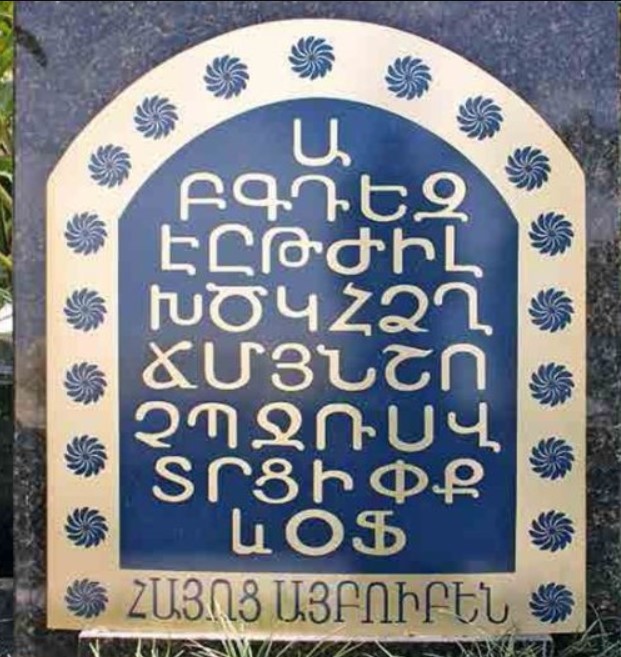
Monument to the Armenian Alphabet, Church of St. Hovhannes Mkrtich, Ozaska, Brazil
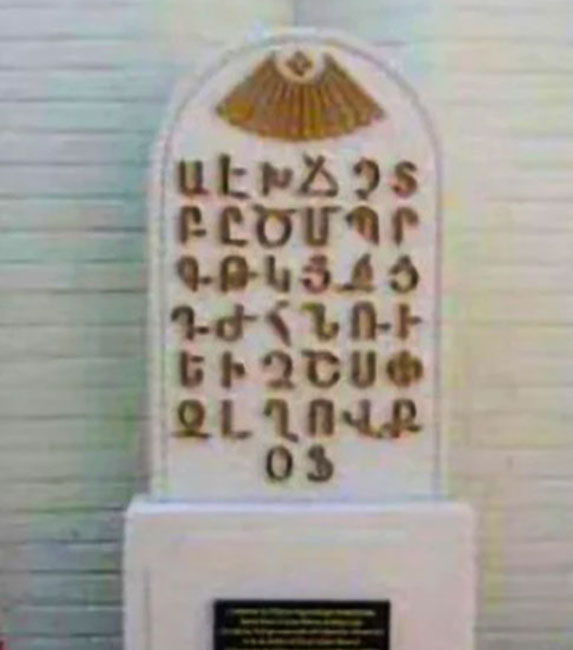
The Armenian Alphabet stele, Alforville, France
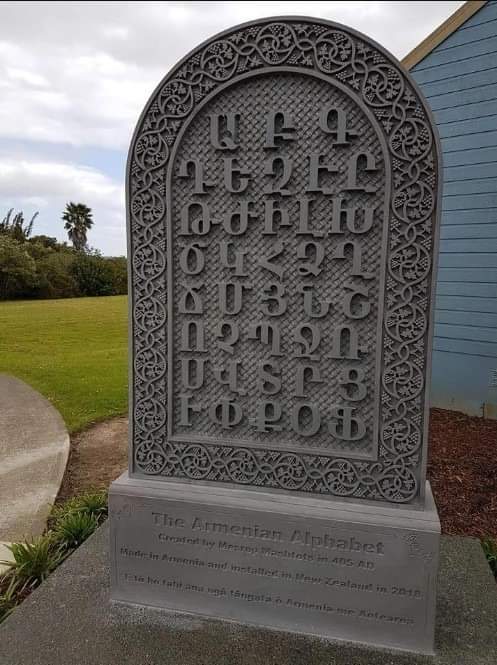
Monument to the Armenian alphabet in Auckland, New Zealand
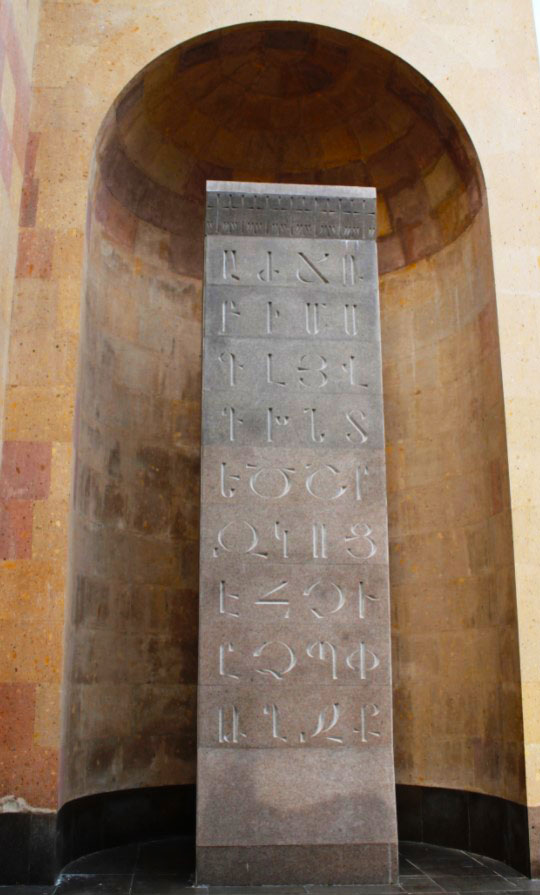
Armenian Alphabet, Holy Transfiguration Cathedral, Moscow, Russia
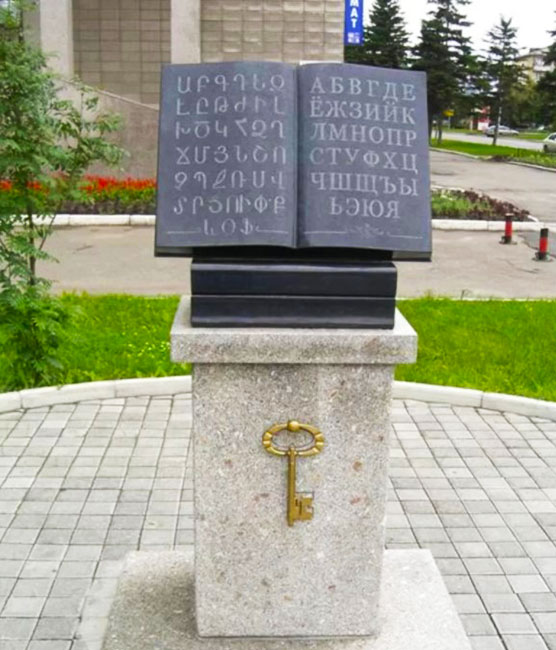
Monument to Book, Barnaul, Russia
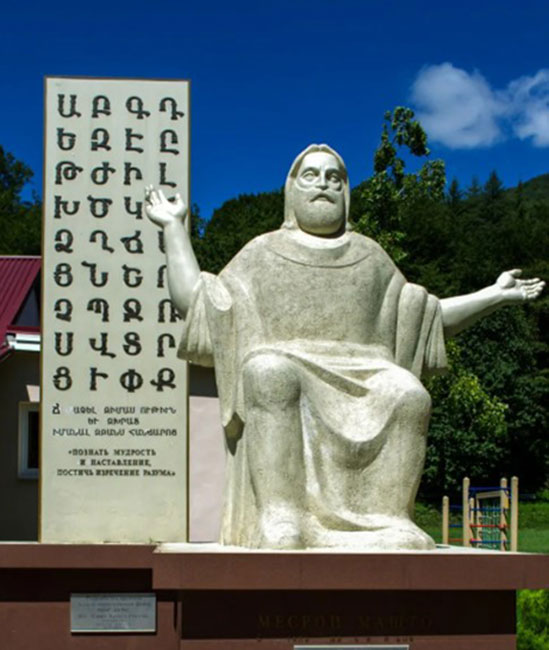
Mashtots and Armenian Alphabet, Nor Luys, Sochi, Russia
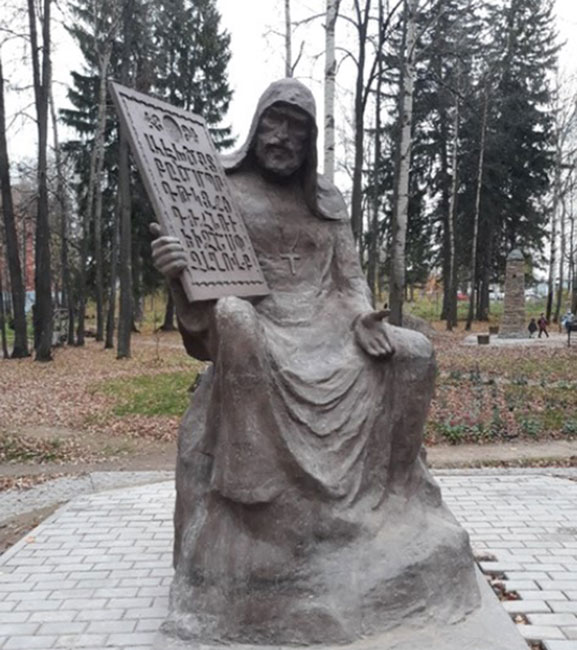
Monument to the creator of the Armenian Alphabet, Izhevsk, Russia






















